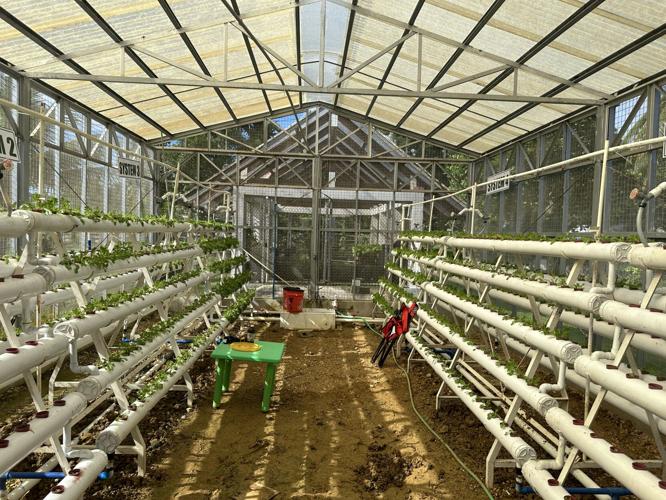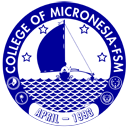Yap: Sustainable plans for economic development
By Thomas Benavente Pacific Daily News | Nov 4, 2023
 (Editor’s note: This is part of a series of stories from an Oct. 14-18 Guam media familiarization tour of Yap in the Federated States of Micronesia, hosted by the Yap Visitors Bureau and the government of Yap.)
(Editor’s note: This is part of a series of stories from an Oct. 14-18 Guam media familiarization tour of Yap in the Federated States of Micronesia, hosted by the Yap Visitors Bureau and the government of Yap.)
As Yap attempts to balance its cultural ties with economic development, their government officials and local entities are exploring different ways to sustain its 11,577 residents through more locally grown vegetables, advanced airport infrastructure and a continued push into tourism.
Agriculture and fishing continue to be strong facets of Yapese locals. Taros, cassava and bananas are prominent while families are also able to go fishing in locally-owned waters up to the reef.
Vegetables and fruits are still imported from off island, but due to logistical costs, local residents are not always able to buy the produce. Thus, despite their delicious and unique dishes, locals are still subject to similar eating habits as Marianas residents, including instant ramen, rice and Vienna sausages.
To help initiate healthier eating habits, the Yap campus under the College of Micronesia has a program where they are developing a hydroponics greenhouse to help produce locally affordable vegetables.
Jeffrey Falag, an agriculture agent for the College of Micronesia, shared the process that they have been experimenting with for the last six to seven months, beginning with lettuce.
“Our main goal is to see if it works. Second, we want to train other people so that we can also have others trying it for businesses and entrepreneurship,” said Falag. “We want to show that you can make a living out of this.”
Falag added the health benefits they are seeking with producing their vegetables to the residents.
“It is really hard to tell people to eat more vegetables when there are no vegetables. If there are, you’re basically throwing away your whole paycheck because it’s very expensive to get vegetables on this island sometimes,” said Falag.
Falag added that once they get their system running properly, they’re hoping to experiment with growing napa cabbage and tomatoes.
In addition, some residents find it harder to grow produce for themselves compared to others.
According to the Yap Visitors Bureau, the soil in Yap is generally quite poor as significant portions of the island are considered badlands or covered by savannah grass or clusters of pandanus trees.
Much of the land that is actually able to produce crops is near the coastline or in the valleys between Yap’s hilltops. To add on to that issue, much of the shore area is already covered with mangroves or rocks.
Airport infrastructure
The Yap International Airport is working with the Federal Aviation Administration on a $33.8 million project to rehabilitate and resurface their only runway and taxiways.
John Sigrah, the airport manager, shared how the project may benefit Yap after years of closure due to COVID-19.
“It severely impacted funding. For about six months, there were no flights, which nearly shut down the economy,” said Sigrah. “We’re still in the recovery phase right now with the two United Airlines flights every week.”
Sigrah is also expecting in-house airport upgrades, such as remodeling their check-in area and adding a second floor to the airport.
Tourism push
Charles Chieng, governor of Yap, shared his appreciation for future visitors as he wants to help Yap be a “home away from home” for other travelers.
“There is still a lot of work that Yap has to do in terms of tourism development. However, one thing that we are fortunate to have is the maintenance of our strong culture,” said Chieng. “We invite visitors and tourists to a presentable situation where they can relax and enjoy community events. This can be beneficial to all of the Pacific islands.”
Ishwar Persad, YVB’s tourism executive consultant, added why Yap is continuing to push for tourism and how it will benefit their economy.
“Tourism development is considered to be one of the pillars for economic development in Yap. The island offers incredible scuba diving, as well as land-based natural and cultural products,” said Persad. “ With less than 2,000 annual visitors, there is significant room to sustainably grow these numbers. This would result in increased income generation for the government from taxation and employment creation, as well as contribute to the preservation and enhancement of its natural and cultural/heritage product.”
SOURCE: https://www.guampdn.com/news/yap-sustainable-plans-for-economic-development/article_dd7ea36a-7882-11ee-bd00-43bc875c5f2f.html
